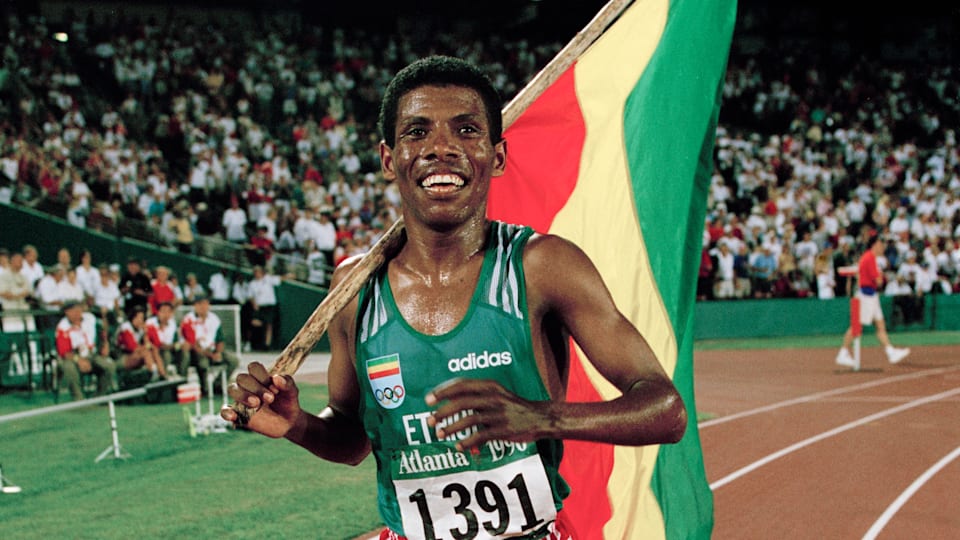
Despite the fact that he was making his Olympic debut, Ethiopia's Haile Gebrselassie arrived in Atlanta as hot favourite for the men’s 10,000m. He had won the world title over that distance at the 1993 and 1995 World Championships, had broken the world record and was fully expected to take his first Olympic experience in his stride.
Gebrselassie grew up on a farm near the village of Assela. Each morning he would run 10km to school, and then another 10km home again in the afternoon. So the 10,000m had become part of his daily routine long before he began to train seriously as an athlete.
The double world champion quickly established himself as a crowd favourite in Atlanta. His greatest rival for gold was another African runner who was at the peak of his form – Kenya's Paul Tergat. The Kenyan was himself a double world champion, having twice won the cross-country title, and he was unlikely to be fazed by Gebrselassie.
Neither of the favourites wanted to set the early pace, so they allowed Burundi's Aloys Nizigama to lead the race for the first 5,000m. Then Tergat’s two compatriots Paul Koech and Josephat Machuka took over, but with 2,000m left, there were still six runners in contention.
It was then that Tergat made his move, stretching the field out as he accelerated away with only Gebrselassie for company. The pace was searing and the two favourites were now pushing each other ferociously hard. As they approached the bell for the final lap, Gebrselassie pulled level, paused, and then sprinted into a clear lead, with Tergat suddenly finding himself four, then eight, and then 12 metres behind.
The Kenyan started to close the gap, but the world record holder was not to be caught. Gebrselassie crossed the line in 27 minutes 7.34 seconds, a new Olympic record.
What was even more extraordinary about his time was that he had completed the second half of the race in 13 minutes 11.4 seconds, a time that would have won the Olympic 5,000m title over in 19 of the 21 editions of the Games in which the event had been staged.
The idea that an athlete could run 5,000m in gold medal time having already run 5,000m almost defied belief!Gebrselassie retained his 10,000m title four years later in Sydney, once again beating Tergat to the line. He raced again at the Athens and Beijing Games, missing out on medals but still finishing in the top six on both occasions to retain his place among long distance running’s elite and further cement his status as one of the greatest Olympians of all time.
